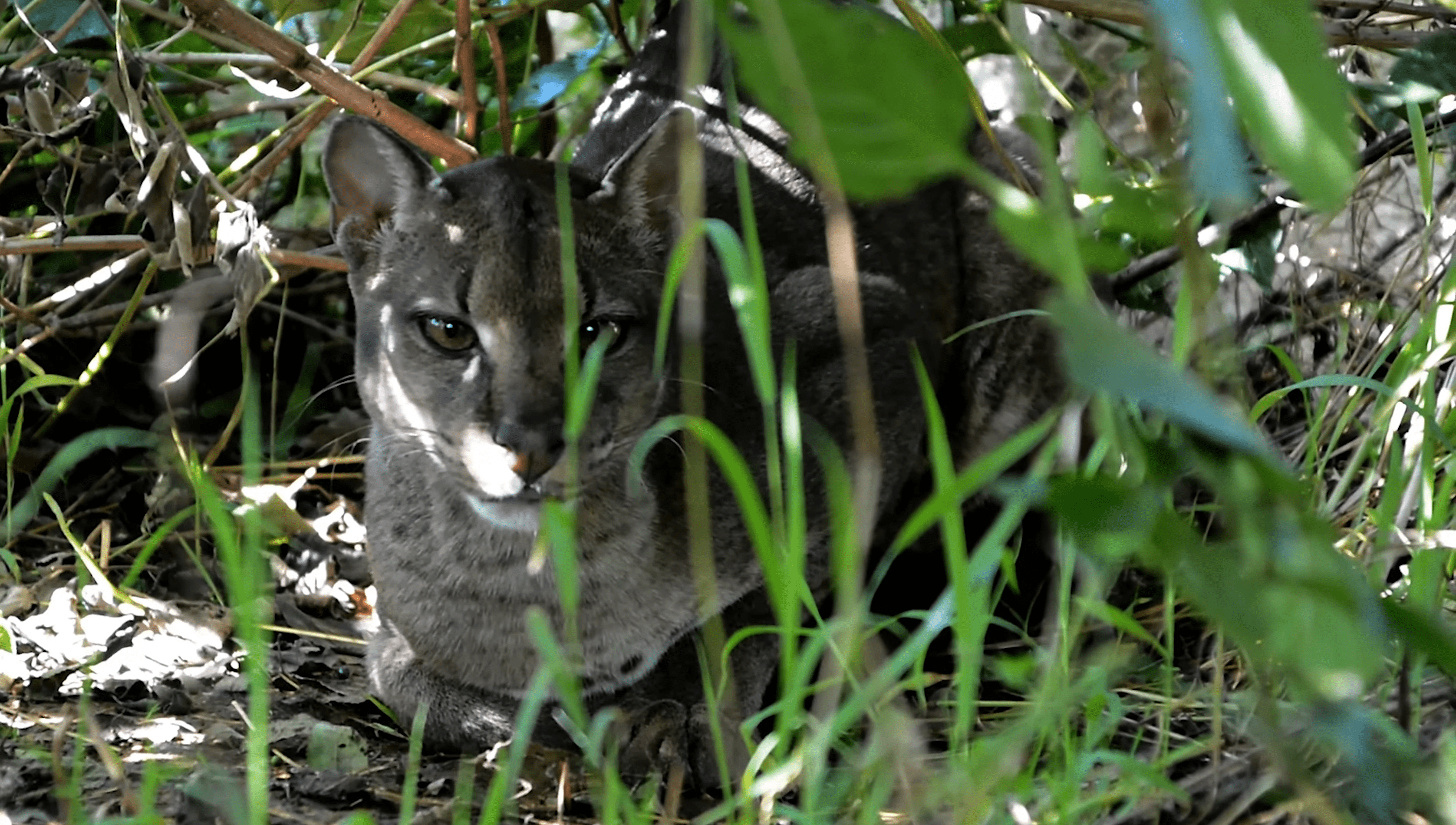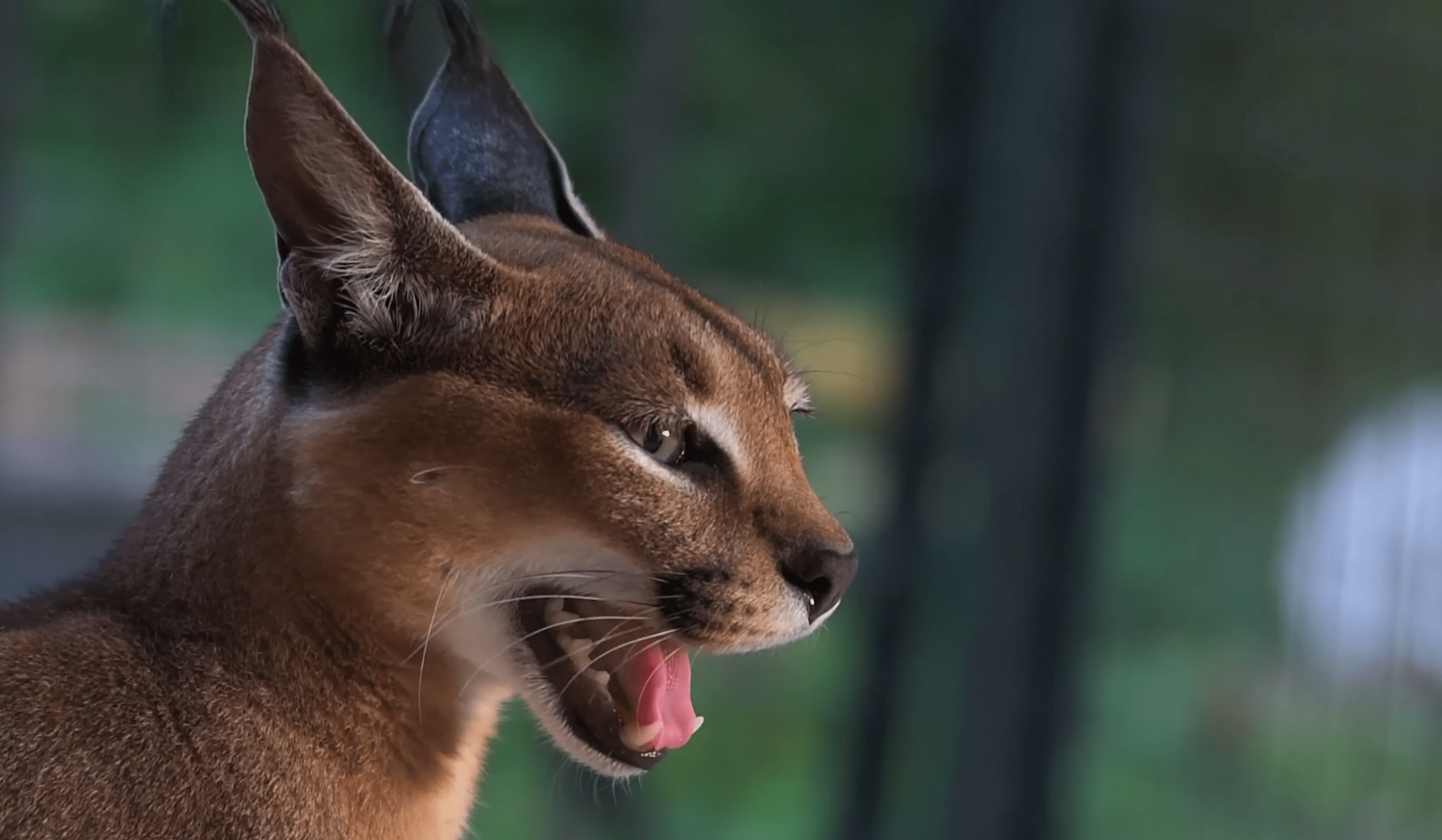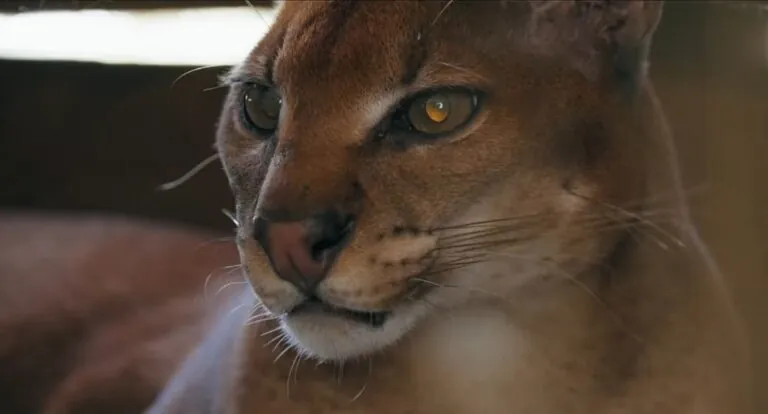The African Golden Cat (Caracal aurata), with its stunning golden fur and elusive nature, stands as one of Africa's lesser-known feline species. Despite its striking appearance, this elusive cat remains a mystery to many due to its preference for dense forest habitats.
Subspecies and Variations
While the African Golden Cat is generally considered a single species, there may be variations among populations across its range. Some experts suggest the presence of distinct subspecies, although further research is needed to confirm this. Variations in coat color, size, and other physical characteristics may exist among different populations of the African Golden Cat.
Physical Characteristics
The African Golden Cat exhibits a range of physical characteristics that set it apart from other wild cats. Its fur can vary from reddish-brown to golden-yellow, with black spots or rosettes scattered across its body.
This cat has a robust build, with relatively short legs and a long tail. Its rounded ears and expressive eyes contribute to its captivating appearance, making it a sight to behold for lucky observers.
Behavioral Traits
As primarily solitary animals, African Golden Cats are rarely seen in pairs or groups. These cats are predominantly nocturnal hunters, relying on their keen senses of sight and hearing to locate prey in the darkness of the forest. While elusive in the wild, African Golden Cats have been observed engaging in playful behaviors, particularly among young individuals.

Dense Forests: Its Natural Habitat
The African Golden Cat is uniquely adapted to life in dense forest habitats, where it can find ample cover and prey. From the rainforests of Central Africa to the montane forests of East Africa, these cats inhabit a variety of forest types across their range.
They are particularly abundant in areas with dense undergrowth and ample prey populations.
Geographic Distribution
The African Golden Cat is found in various countries across Central and West Africa, including Nigeria, Cameroon, Gabon, and the Democratic Republic of the Congo.
Its range extends eastward into parts of Uganda, Kenya, and Tanzania. However, due to its elusive nature and the remote nature of its habitat, exact population numbers and distribution patterns remain difficult to determine.
Importance of Forest Conservation
The conservation of forest habitats is crucial for the survival of the African Golden Cat and countless other species. Deforestation, habitat fragmentation, and human encroachment pose significant threats to these ecosystems and the biodiversity they support.
Efforts to protect and restore forest habitats are essential for safeguarding the future of the African Golden Cat and preserving Africa's rich natural heritage.
Understanding the Life Cycle
The life span of an African Golden Cat can vary depending on factors such as predation, disease, and habitat quality. In captivity, these cats may live up to 12 years or more, while individuals in the wild likely have shorter life spans due to the challenges they face in their natural environment.

Factors Affecting Longevity
Like many wild animals, African Golden Cats face numerous threats to their survival, including habitat loss, poaching, and conflict with humans. Conservation efforts aimed at addressing these threats can help improve the prospects for these cats and ensure their long-term viability in the wild.
Conservation Concerns
Despite being relatively unknown compared to other African carnivores, the African Golden Cat faces significant conservation challenges. Habitat loss and degradation continue to threaten populations across their range, while illegal hunting and trapping pose additional risks. Conservation initiatives focused on protecting forest habitats and reducing human-wildlife conflict are essential for ensuring the survival of this unique and enigmatic species.
Dietary Preferences
The African Golden Cat is a versatile predator with a diverse diet that includes small mammals, birds, reptiles, and even insects. Its hunting strategies may vary depending on the availability of prey and the characteristics of its habitat. These cats are skilled climbers and may hunt prey both on the ground and in the trees.
Hunting Techniques
African Golden Cats employ a variety of hunting techniques to capture their prey, including stalking, ambushing, and pouncing. Their agility and stealth allow them to move silently through the forest understory, making them formidable hunters despite their relatively small size.
Prey Selection and Availability
The availability of prey species can influence the diet and behavior of African Golden Cats. In some areas, they may rely heavily on rodents and small mammals, while in others, they may target birds or reptiles. Understanding the dynamics of prey populations and their interactions with predators is essential for effective conservation management.
Preserving the African Golden Cat's Habitat
As the only forest-dependent wild cat in Africa, the African Golden Cat occupies a unique niche in its ecosystem. Protecting its habitat and addressing the threats it faces are essential for ensuring the continued survival of this enigmatic species. By raising awareness, supporting conservation efforts, and promoting sustainable land use practices, we can help secure a brighter future for the African Golden Cat and the forests it calls home.


No comments yet